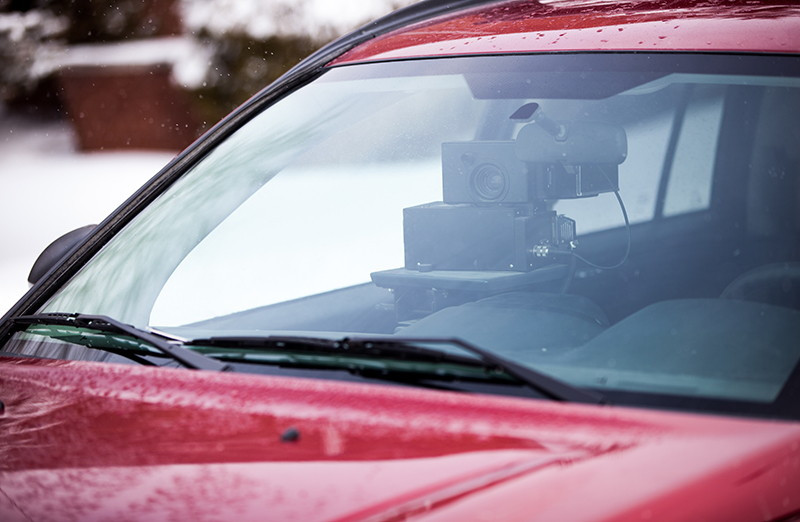WPS steadfast in photo radar expansion considerations despite provincial disapproval
Critics accuse police of misconstruing public opinion on controversial program
Despite the Province of Manitoba’s statement last month that it was not considering an expansion of the city’s photo radar program, the Winnipeg Police Service insists it’s keeping the issue on the table.
When questions from a still-forthcoming public opinion telephone survey were published on the City’s website in January - which, among other topics, asks respondents how they feel about an expansion of the WPS’s photo radar program beyond its current school and construction zone jurisdiction - local media sought answers from Premier Greg Selinger, whose office stated such an expansion was not being discussed.
However, in an email response to The Uniter this past week, a WPS media representative explained that, “the answers (from the survey) will provide direction for some police activities going forward,” suggesting the WPS is by no means averse to the idea.
“The (WPS’s) position is that these cameras encourage safer driving and thus are safety initiatives,” says the response, addressing the question of the program’s critics.
“The fact that those who choose to speed and fail to stop for red lights contribute to revenue is a by-product of the initiative and not the goal.”
“Our findings show that the initiative has been successful in those areas where cameras have been placed and the belief is that expanding their use would indeed have further positive impact on safe driving within the city.”
Todd Dube, a member of local citizen activist group WiseUp Winnipeg, which opposes the city’s implementation of red light cameras and photo radar vehicles, thinks the rhetoric used in the survey - which poses the hypothetical expansion specifically as a safety issue, implying that doing so would inevitably reduce traffic accidents - is likely to skew eventual results.
He suggests survey data the WPS cited during controversial discussions over the City’s decision to renew its photo radar contract for seven years, which stated that 83 per cent of Winnipeggers approved of the program, is an example of this effect in action.
“If it wasn’t for the stylish way of putting the question (which garnered the above result) forward they would have lost by a landslide,” says Dube, who points to local newspapers’ polls on the same subject (while they do not purport to be accurate surveys) which show almost inverse results, as reason to be skeptical of the WPS’s numbers.
Colin Craig, prairie director for the Canadian Taxpayers Federation, is among those inclined to check “no” when asked if he approves of the program.
“Photo radar has clearly become all about the money in Winnipeg,” he says, pointing to the generally maligned WPS practice of placing photo radar vehicles in school zones on Sundays as evidence.
“It’s reasonable to issue tickets to people if they’re breaking the law, but the best way to do that is to pull someone over and try to educate them about the correct behaviour,” he says, explaining that human pullovers serve to immediately intervene in dangerous behaviour, while photo radar tickets, which reach speeders sometimes months after the fact, do little to protect the public.
As for the mixed messages from different levels of government:
“On this issue, the provincial government is standing closer to the side of taxpayers than City Hall,” says Craig. “City Hall is blatantly abusing the program - at least the Province is saying we’re not going to expand it further.”
Published in Volume 67, Number 22 of The Uniter (March 6, 2013)







